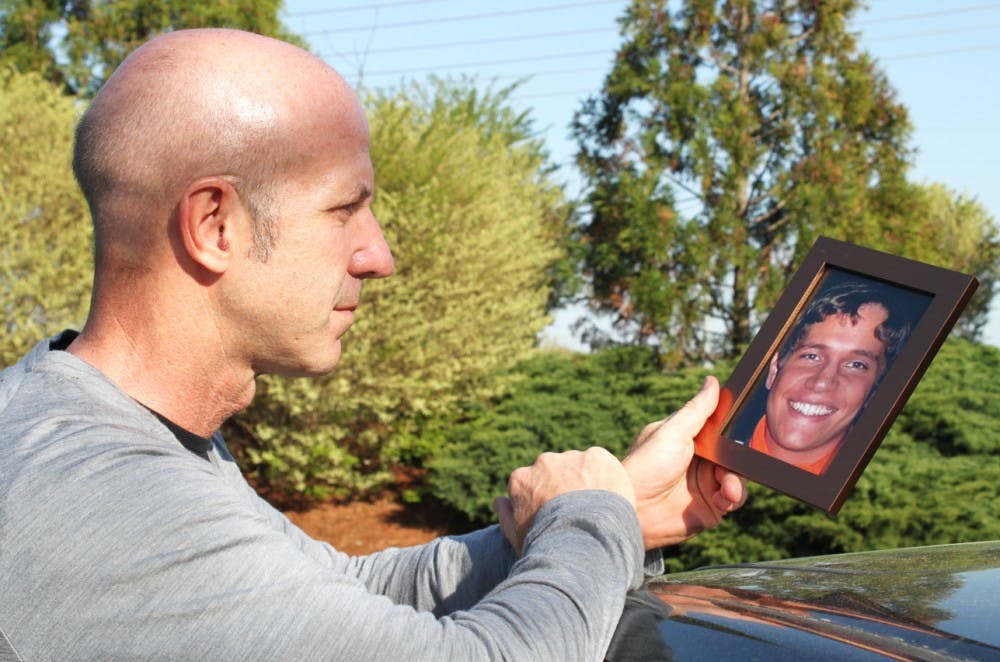“My goal was that other people like me who were in the position to help someone could be informed,” Barry Bryant said.
At the training, 45 participants from UNC and the community learned how to recognize suicidal behavior and intervene.
Participants spent the weekend learning how to assist suicidal youth between ages 10 to 24, program trainers Charlotte Williams and Kathy Crumpler said.
Kristen Stefureac, a senior at UNC and president of the University’s Active Minds chapter, said both the program and Active Minds work to end the mental health stigma.
“The whole conversation on mental health needs to change, and it’s not going to change if people don’t start talking about it,” she said.
What also needs to change, experts said, is an unsettling increase in the severity of mental health issues at UNC and colleges nationwide.
Allen O’Barr, director of UNC Counseling and Wellness Services, said an online spring 2010 survey of 1,969 then-freshmen found 4.8 percent of respondents — about one in 20 students — had seriously considered suicide within the last 12 months.
And 1.2 percent of the freshmen respondents said they had attempted suicide within the same time frame.
Those numbers are slightly higher than the national average for all college students, which stand at 3.9 percent and 0.8 percent, respectively, according to a spring 2010 American College Health Association survey. The survey did not focus solely on freshmen.
O’Barr said that though actual suicide rates at UNC have remained stable over the past decade at about one per year, other mental health issues are worsening at the University and nationally.
Though Counseling and Wellness Services doesn’t have a system to chart the types of cases it sees yet, O’Barr said it has seen an increased proportion of the student body in recent years.
And O’Barr said campus mental health professionals have seen increasingly acute problems recently, possibly because today’s college students face an information overload, with heightened information access pressuring them to know more.
To get the day's news and headlines in your inbox each morning, sign up for our email newsletters.
He said experts cannot definitively explain the increase in the prevalence — and seriousness — of mental health issues.
“Some blame increasing stress and anxiety on campus, others have postulated decreased barriers to mental health,” O’Barr said.
He said 80 percent of the University’s survey respondents reported feeling overwhelmed at some point in the past 12 months — almost four times the national survey’s 20.5 percent.
But David Rubinow, chairman of the psychiatry department, said the discrepancy might have occurred because the UNC survey specifically targeted freshmen, who are in a state of transition and might feel greater pressure than most.
He said feeling overwhelmed is normal, but students should seek help if the stress becomes severe.
“If it persists — if it begins to interfere with relationships or school — then that’s license to worry,” he said.
Both Rubinow and Avery Cook, clinical services coordinator for Counseling and Wellness Services, said friends are often the first to notice mental health problems. They said it is important for people to encourage troubled friends to seek help.
“This is a great opportunity for people to take responsibility for their fellow man,” Rubinow said.
Cook said it is important for students and their friends to know they can find help on campus through the Counseling and Wellness Services.
Counseling and Wellness Services offers a crisis intervention hotline and takes walk-in visitors, assesses them, and helps them find the treatment they need, among other services.
“The biggest thing is that we are open and available for all students on campus,” Cook said.
Students with mental health concerns can also speak to residence hall resident advisers and personnel, who are trained to recognize such problems and refer students to professional help at Counseling and Wellness Services.
“We want to help students get support, if needed,” Avery said.
And nearly a year after Eric Bryant’s death, Barry Bryant said he believes the University has made progress in mental health outreach.
Contact the University Editor at university@dailytarheel.com.




